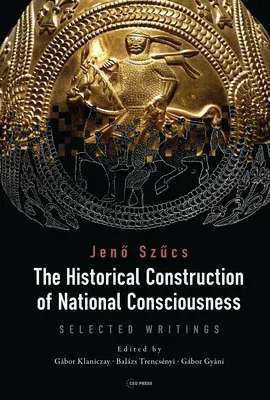Jenő Szűcs
(Author)The Historical Construction of National Consciousness: Selected WritingsHardcover, 15 October 2022

Qty
1
Turbo
Ships in 2 - 3 days
Only 2 left
Free Delivery
Cash on Delivery
15 Days
Free Returns
Secure Checkout

Print Length
360 pages
Language
English
Publisher
Central European University Press
Date Published
15 Oct 2022
ISBN-10
6155225273
ISBN-13
9786155225277
Description
Product Details
Author:
Book Format:
Hardcover
Country of Origin:
HU
Date Published:
15 October 2022
Dimensions:
22.86 x
15.24 x
2.06 cm
ISBN-10:
6155225273
ISBN-13:
9786155225277
Language:
English
Location:
Budapest
Pages:
360
Publisher:
Weight:
653.17 gm